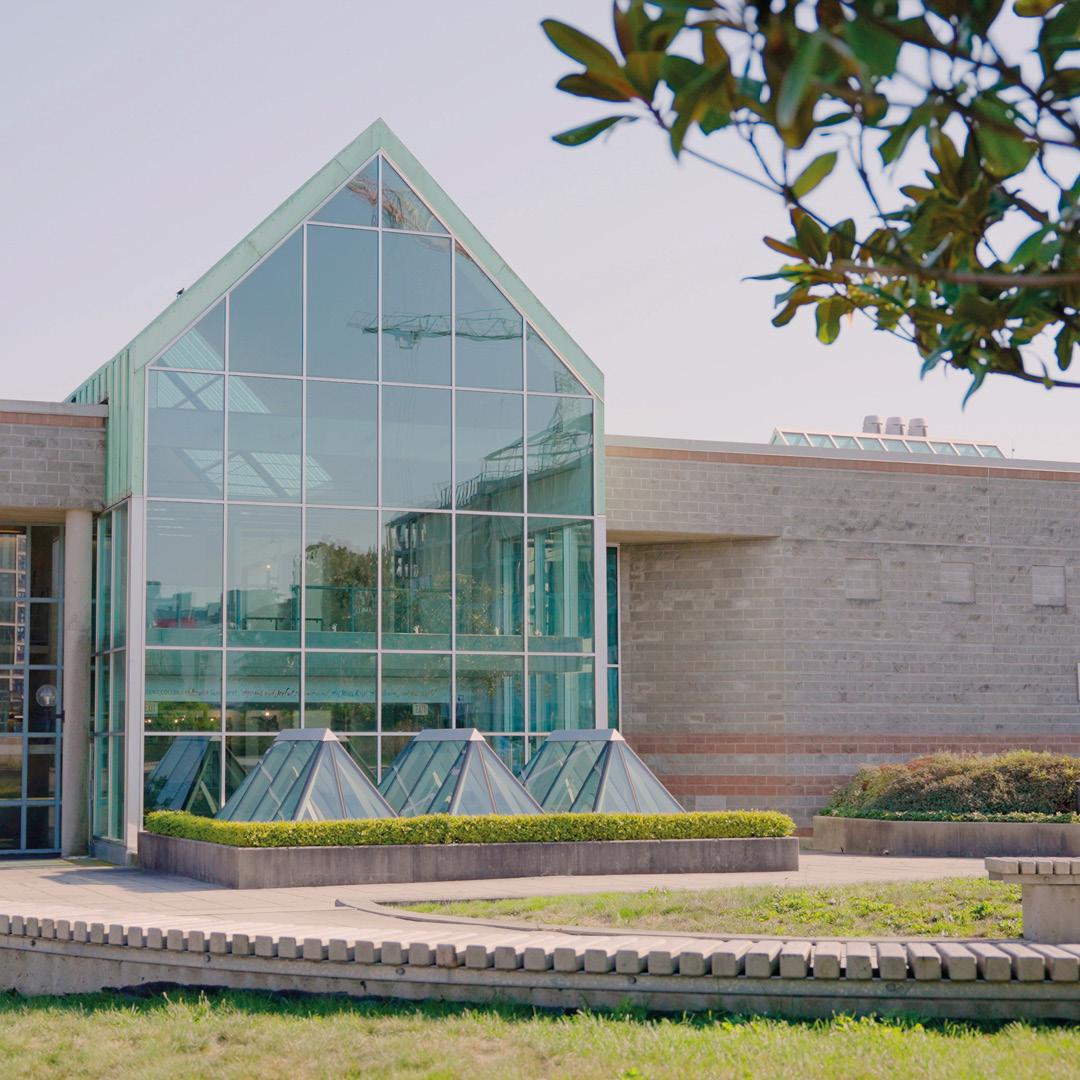Welcome to The Vine, a publication of Regent College.
We’re delighted to share ideas and perspectives from a wide range of people within and beyond Regent’s circles. In articles and interviews, podcasts and videos, you’ll hear authentic voices speaking from experience and expertise about ideas that matter to our community and yours.
Join us for conversations that inform, challenge, and inspire.

Welcome to The Vine, a publication of Regent College.
We’re delighted to share ideas and perspectives from a wide range of people within and beyond Regent’s circles. In articles and interviews, podcasts and videos, you’ll hear authentic voices speaking from experience and expertise about ideas that matter to our community and yours.
Join us for conversations that inform, challenge, and inspire.


Podcast: Language, Culture, and Calling
In this conversation, Regent’s new Academic Dean reflects on his journey through IT, pastoral ministry, and academia. He highlights cultural context, language, and the Old Testament’s influence, urging students to pursue whole-person formation and cultivate relationships alongside intellectual growth.
All Resources
Podcast: Language, Culture, and Calling
Sport: Idolatry or the Image of God … or Both?
The Importance of Ritual Learning for the Development of Child Faith
This article argues that age-segregated church practices weaken children’s faith formation. Drawing on theology and developmental research, it calls for including children in baptism and communion as formative rituals that apprentice faith through participation, not instruction alone.
Podcast: Christianity and Immigration Policy
Finding Wholeness Now: A Journey through Freedom Session
Podcast: The Saint John's Bible Heritage Edition at Regent and Beyond
Perfection and Speech about God’s Character in the Old Testament
Community: Diaspora Theology in Real Time: Technology and Transnational Community
Imagine Otherwise, the online magazine of Princeton’s Center for Asian American Christianity, hosts a podcast with Prof. Ann Gillian Chu on lived theology, Hong Kong’s political unrest, BN(O) migration to the UK, and its impact on faith, family, and community life.
Podcast: Regent on Tour at AAR/SBL 2025
Audio: The Love of God: A Simple Mistake?
The Fragrance of Life: Cinnamon in the Bible (Part Two)
The Fragrance of Life: Cinnamon in the Bible (Part One)
A Slightly Useful Way: Marilynne Robinson’s Gilead and a Homiletic of Epistemic Humility
Drawing on Marilynne Robinson’s Gilead, this essay explores how preaching shaped by epistemic humility—embracing mystery, complexity, and grace—can speak more faithfully and credibly to a skeptical age.
Podcast: Addiction, Personhood and Christian Communities
Putting Technology in Its Proper Place
Charge to the President
Poetry: A Note to Doomsday Calculators
Community: Malcolm Guite's Tribute to Luci Shaw
Podcast: Discovering God's Gentleness by Risking Rest
This episode explores Carolyn Watts’ journey from obstetrics in Afghanistan to life with chronic illness. Drawing on her memoir Risking Rest, she reflects on God’s intimate care, the gifts of singleness, trusting Him in hardship, and embracing rest amid life’s pressures.
Community: David Robinson Interview with the Pacific Podcast
In this engaging conversation with The Pacific Podcast, regular Vine contributor and Regent College faculty member David Robinson reflects on the life and thought of Dietrich Bonhoeffer, explores themes in marketplace theology, and shares insights from Regent College’s Master of Arts in Leadership, Theology, and Society (MALTS) program.
Calling Churches in Cascadia: Lessons from Regent Exchange
Audio: Epiphany
Video: Yohanna Katanacho on Faith, Justice and Peacemaking | Walk & Talk
The Twelve Days of Christmas
The Adventure of Waiting Well
Advent: The Poverty of Christ
Advent: An Eager “Yes” to the Grace of God
Advent: And Just Who is This Family?
Advent: Proclamation of Peace
Advent: Hope Itself is Born
Advent: Meaning and Destiny
Advent: Son of David
Advent: Creator and Redeemer
Advent: Christ the Gardener
Advent: Redemption Through Suffering
Advent: God has Spoken
Advent: A Divine Model
Advent: The Trusting Servant
Advent: Pothole Theology
Advent: God Breaks In
Advent: Silent Reflection
Advent: Comfort!
Advent: Contemplative Prayer
Advent: God Forges a Path
The God Fruit
Advent: In Both Seasons
Advent: Expectant Waiting
Advent: On Bended Knee
Advent: A Tender Bud
Advent: A Light in the Darkness
Three Bodies United in One: A Holistic Theology of the Body
Quintessential Christian Humanist
On the Significance of Religion for Immigration Policy
Podcast: Becoming God's Family
Excerpt: The Glory of the Ascension
Video: Imagining the Kingdom: Parable, Poetry & Gospel
Podcast: Twenty Years at the Intersection of Trauma and Theology
Audio: Finishing Well
The Horror of Hearing Without Listening
The Texas Chain Saw Massacre’s experimental soundtrack invites theological reflection on the act of listening. Jeremy Hunt argues that engaging with unsettling sounds can retrain us to listen deeply—cultivating empathy, attention, and presence in a noisy, distracted world.